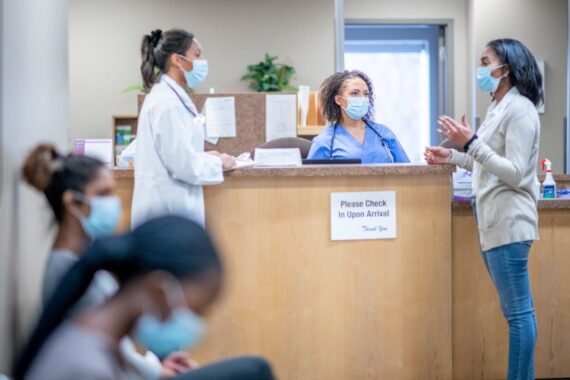NHS England has been urged to ‘be honest with the public’ about capacity constraints in its upcoming recovery plan for general practice.
The commissioner confirmed last month that it was ‘hard at work’ in putting together a primary care recovery plan in cooperation with the Government.
The recovery strategy, which Pulse has been told could be published within weeks, is being prepared alongside the long-awaited long-term NHS workforce plan.
However, ahead of its publication, the NHS Confederation has warned NHS England that it must ‘be honest with the public’ about what primary care can realistically deliver.
It outlined ten priorities for the new plan, which focus on workforce, investment in estates, integration with the wider system as well as ‘honesty and realism’.
The NHS Confederation emphasised the current demand on GPs saying that primary care ‘has been asked to do more with less in real terms over the past decade’.
It highlighted that one in four GP posts are at risk of vacancy by 2030/31, while over one in five general practice and primary care premises in England are not fit for purpose.
NHS Confederation director of primary care Ruth Rankine said: ‘Leaders know it will be difficult to balance wider ambitions with what is achievable in the face of intense challenges and as such they are also urging the government to be honest with the public about what primary care services can deliver in the face of these demands.
‘For instance leaders recognise people’s frustrations around NHS performance, particularly in relation to primary care.
‘We know that a major issue for patients is simply getting through to their GP on the phone, which members are working hard to address with the resources available.
‘But there is only so much difference this will make without tackling wider issues, most notably workforce shortages and primary care services plagued by crumbling estates and infrastructure.’
Last week, NHS England announced changes to the GP contract for 2023/24 which included more stipulations around access, including the requirement for GP practices to offer patients an assessment or signpost them to an appropriate service on first contact.
In January, NHS England published a recovery plan for urgent and emergency care services, which the BMA warned is likely to push workload onto already-overworked GPs and their teams.
NHS Confed’s 10 priorities for the primary care recovery plan
- Co-create a common purpose. Trust and support primary care to find and implement solutions.
- Set out priorities and be honest with the public about what is achievable.
- Support primary care to operate at scale to manage its workload.
- Support primary care to recruit and deploy the right workforce for local need.
- Invest in transformation and management support, estates, IT and digital solutions.
- Transfer power and knowledge to individuals and communities to enable them to take ownership of their health and wellbeing.
- Support primary care to connect with the wider system to create seamless pathways between primary and secondary care.
- Ensure regulatory permissiveness balanced with proper accountability
- Address disproportionate investment which meets the needs of different groups of the population.
- Develop data to measure, quantify and describe pressures on primary care.
Pulse October survey
Take our July 2025 survey to potentially win £1.000 worth of tokens













more jam tomorrow !
…but there’ll be plenty of that turnip jam!